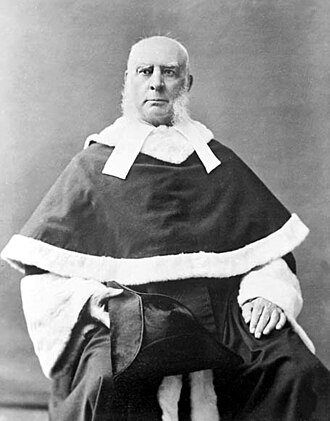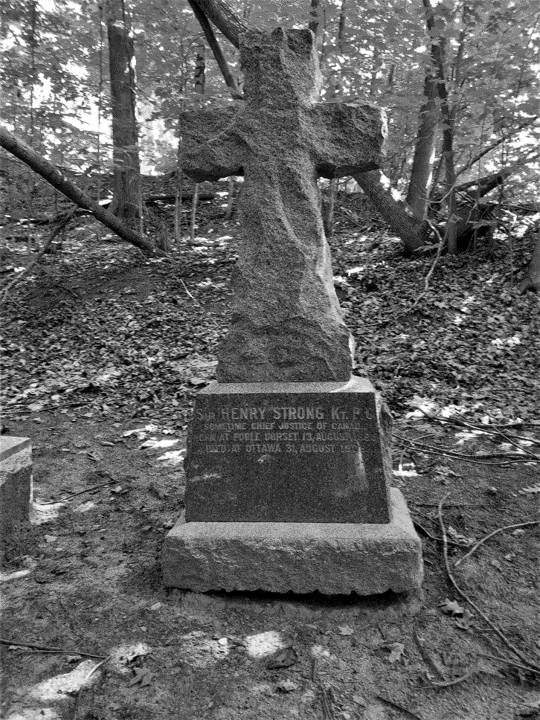
The Right Honourable Sir Samuel Henry Strong: A Legacy of Judicial Leadership
Section 61, Lot 9
Early Life and Education Born in Dorsetshire, England, on August 13, 1825, Sir Samuel Henry Strong immigrated to Canada in 1836. He pursued legal studies in Ottawa and Toronto and was called to the bar in 1849. Legal Career Strong's legal career began with his call to the bar in 1849. His legal expertise and dedication quickly led to his appointment as a judge of the Court of Chancery of Ontario in 1869, where he served until 1874. He was then appointed a judge of the Supreme Court of Ontario.
Supreme Court of Canada In 1875, Strong was appointed a judge of the newly formed Supreme Court of Canada. His judicial acumen and leadership qualities were soon recognized, and in 1892, he was elevated to Chief Justice of the Supreme Court of Canada. He held this esteemed position until his retirement in 1902. In 1897, Strong was also sworn in as a member of the Judicial Committee of the Privy Council, further cementing his influence in the realm of Canadian and Commonwealth law.
Key Cases and Contributions
- Citizens Insurance Co. v. Parsons (1881): One of the landmark cases during Strong’s tenure, this case addressed the division of powers between federal and provincial governments. Strong’s judgment helped delineate the boundaries of legislative authority under the British North America Act, establishing a foundation for future federalism cases.
- Russell v. The Queen (1882): In this significant case, Strong’s decision upheld the federal government's power to regulate alcohol, reinforcing the federal authority over matters of national concern. This case remains a cornerstone in the interpretation of federal powers in Canada.
- St. Catharines Milling and Lumber Co. v. The Queen (1888): Strong played a crucial role in this case, which involved Indigenous land rights and the interpretation of treaties. His judgment highlighted the complexities of federal and provincial jurisdiction over Indigenous lands, influencing subsequent legal discourse on Indigenous rights.
- Union Colliery Co. of British Columbia v. Bryden (1899): In this case, Strong’s ruling addressed the issue of provincial authority to regulate labor and immigration. His decision helped clarify the scope of provincial powers in these areas, contributing to the development of administrative law in Canada.
Strong was known for his meticulous and principled approach to legal interpretation. His judgments often reflected a deep commitment to the principles of justice and the rule of law, shaping the legal landscape of Canada during a formative period.
Honours and Later Years In 1897, Strong was honored with a position on the Judicial Committee of the Privy Council, reflecting his esteemed status within the legal community. After retiring from the bench in 1902, Strong continued to be a respected figure in legal circles until his death on August 31, 1909, in Ottawa.
Legacy Sir Samuel Henry Strong’s contributions to Canadian law are enduring. His leadership on the Supreme Court and his involvement in landmark cases have left a lasting impact on the legal framework of Canada. Sir Samuel Henry Strong remains a celebrated figure in Canadian legal history, remembered for his judicial wisdom and dedication to the principles of justice.


